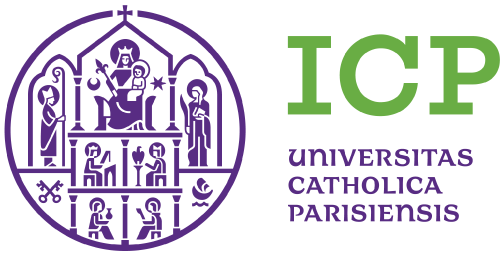Program
Methods of Instruction
Throughout the course's duration, each week is dedicated to delving into a distinct topic that addresses prevalent issues within Internet governance. This encompasses an in-depth exploration of emerging technologies and the intricacies of their governance challenges,
including AI. By equipping students with basic knowledge about the ecosystem and tools, the course empowers them to dig deeper in alignment with their interests. It provides the language and resources necessary to navigate varying stakeholders, technologies, and discussions concerning Internet and AI policy.
Assessment and Final Grade
Students will be required to read between two and four essential readings per ahead of each session. There will also be optional readings for students that want to dig deeper. Each session will include an overview of the topic given by the teacher follow up for discussion questions for students to share their comments, questions, and ideas. Oral participation will count for another third of their final grade.
During the last class, students will be asked to make a presentation (10-15 min) on an AI issue, followed by an interactive conversation with the class. The presentation will count for a third of their final grade.
Finally, students will also be asked to write an essay at the end of the semester which will count for a third of their grade. The question to address during the essay is the following: What governance framework or principles should be established to effectively oversee and manage AI technologies and their impact on society? Max 3000.
Course Requirements
Reading list:
Access Now,The EU should regulate AI on the basis of rights, not risks, 2021.
Barry (Jack J.), Covid-19 exposes why access to the internet is a human right, OpenGlobalRights, 2020.
Beeson (Mark) & Zeng (Jinghan): The BRICS and global governance: China’s contradictory role, Third World Quarterly, 2018.
Black (Julia), Murray, (Andrew), Regulating AI and machine learning: setting the regulatory agenda, European Journal of Law and Technology, 2019 (essential)
Cerf (Vinton G.), Internet Access is not a Human Right, New York Times, 2012.
Copeland (Edie), 10 principles for public sector use of algorithmic decision making, 2018.
DeNardis (Laura), The Emerging Field of Internet Governance, Yale, 2014.
DeNardis (Laura) and Raymond (Mark), ‘Thinking Clearly about Multistakeholder Internet Governance’, 2012.
Drake (William J.), Cerf (Vinton G.) and Kleinwachter (Wolfgang), Future of the Internet Initiative White Paper. Internet Fragmentation: An Overview, Future of the Internet Initiative White Paper, World Economic Forum, 2016.
Duton (Tim), AI Policy 101: An Introduction to the 10 Key Aspects of AI Policy, Medium, 2018.
European Parliament, Artificial intelligence: threats and opportunities, 2020.
Hinojosa (Pablo), Aiken (K.), Hurel (L.M.), Putting the Technical Community Back into Cyber (Policy) in Routledge Handbook of International Cybersecurity, Chapter, 2020.
How Does the Internet Work, Standford Edu, 2002.
Internet Governance Acronym Glossary, DiploFoundation, 2020
Internet Society, Artificial Intelligence and Machine Learning: Policy Paper, 2017.
Internet Society, Navigating Digital Sovereignty and Its Impact on the Internet, 2022.
Internet Society, Artificial Intelligence and Machine Learning: Policy Paper, 2017.
Internet Society, Global Internet Report, Paths to our digital futures, 2018.
Internet Society, Global Internet Report, Consolidation in the Internet Economy, 2019.
Kleinwhächter (Wolfgang), Internet governance outlook 2021, CircleId, 2021.
Kurbalija (Jovan), An introduction to Internet Governance, Geneva, Diplofoundation, 2016.
Kurbalija (Jovan), 20 Keywords for the Digital 2020s: A Digital Policy Prediction Dictionary, 2020.
Lee (Robert) & Rid (Thomas), OMG Cyber! Thirteen Reasons Why Hype Makes for Bad Policy, 2014.
Leiner (Barry M.), Cerf (Vinton G.), Clark (David D.), Kahn (Robert E.), Kleinrock (Leonard), Lynch (Daniel C.), Postel (Jon), Roberts (Larry G.), Wolff (Stephen), A brief story of the Internet, Internet Society, 1997.
Leusse (Constance Bommelaer de), Understand more, fear less: How the future of the Internet can be designed with a human face – Reflexions on the G20 ICT Ministerial meeting, Huffington Post, 2017.
Leusse (Constance Bommelaer de), How governments can be smart about artificial intelligence, Huffington Post, 2017.
L’expansion des BATX, les GAFAM chinois, France Culture, 2019.
Manyika (James), Silberg (Jake),Presten (Brittany), What Do We Do About the Biases in AI?, 2019.
McKinsey, The state of AI in 2023: Generative AI’s breakout year, 2023.
Mittelstadt (Brent), Principles alone cannot guarantee ethical AI, 2019.
Mueller (Milton), Are we in a Digital Cold War?, GIGANET, 2013.
Narayan (Jyoti), Hu (Krystal), Coulter (Martin), Mukherjee (Supantha), Elon Musk and others urge AI pause, citing 'risks to society', 2023.
OECD, AI Principles, 2019
OECD, Going Digital: Shaping policies, Improving lives, 2019.
O’hara (Kieron) and Hall (Wendy), There are now four competing visions of the Internet. How should they be governed? World Economic Forum, 2019.
Radu (Roxana), Negotiating Internet Governance", Oxford, 2019,
Tanczer (Lionie) Digital Policy Careers in the UK Government, UCL, 2020.
TechUk, Pathways into digital careers, 2023.
UK Government, A guide to the Online Safety Bill, 2023.
Wagner (Adam), Is Internet access a human right?, The Guardian, 2012. (optional)
World Economic Forum, The Presidio Recommendations on Responsible Generative AI, 2019.
World Economic Forum, Toolkit for Digital Safety Design Interventions and Innovations: Typology of Online Harms, 2023.
Additional resources:
40 maps that explained the Internet
A Declaration of the Independence of Cyberspace (1996)
CyberBRICS Project.
CircleID, breaking Internet news, opinions, and blogs.
GIP Digital Watch Observatory.
Global Internet governance academic network (GIGANET).
Who Runs the Internet: Internet Consolidation and Control, Chatham House, 2020.
La revue européenne des medias et du numérique.


 Libraries
Libraries
 Practical information
Practical information
